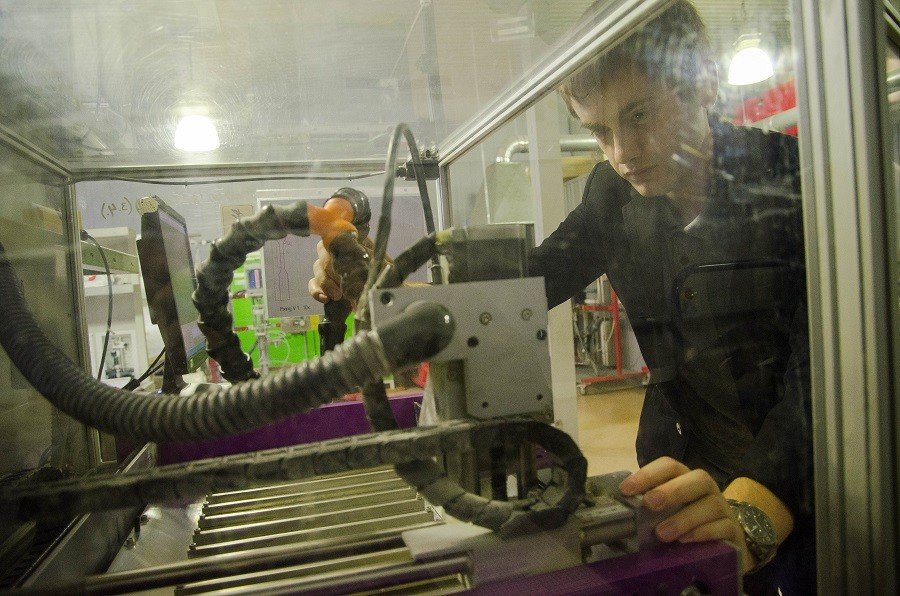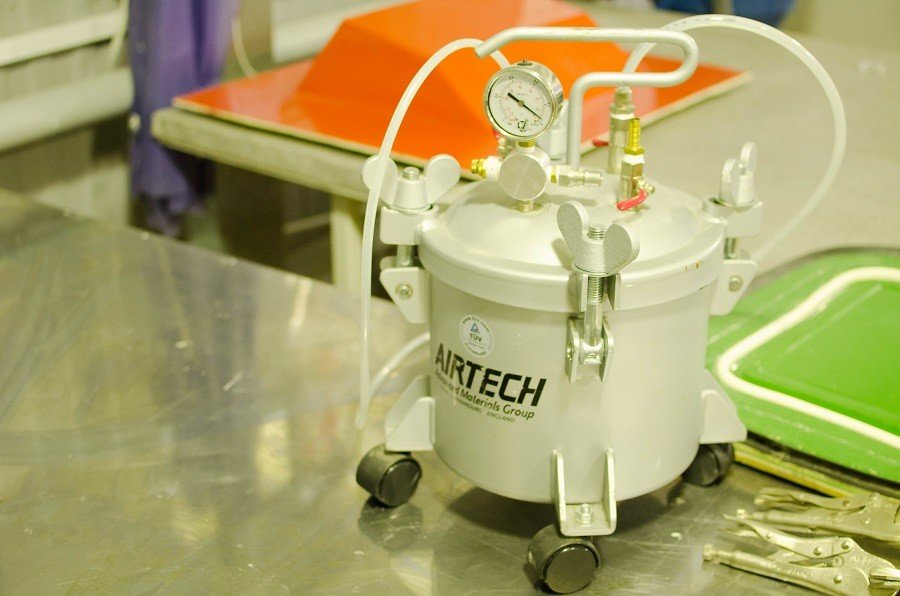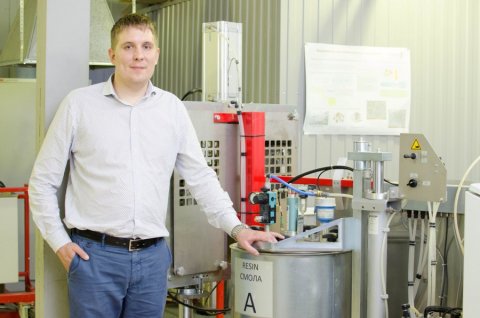Since 2012, the Composite Materials Laboratory has been successfully developed at South Ural State University. It appeared as a result of the reorganization of the Composite Materials and Constructions Academic Research Center. Now, the laboratory is within the Expert Mechanical Engineering Research Institute and its research has significant theoretical and practical importance.
The main areas of scientific research which are carried out daily by staff at the laboratory are the manufacture of a wide range of high-accuracy and high-technology developmental prototypes for mechanical engineering companies and the training of specialists with modern knowledge and skills in mechanical engineering.

A large part of this research is dedicated to the study of properties of composite materials.
“These are materials which consist of a minimum of two components. Together they have a sort of synergistic effect which allows us to achieve certain improved characteristics for mechanical engineering parts,” explains Aleksandr Kheruvimov, head of the Laboratory of Composite Materials.
In the SUSU laboratory the researchers are focused on working with polymer composite materials in which one of the components is a polymer matrix, that is, various plastics, epoxy, polyether resins, and various thermoplastic polymers. And the second component is armor fibers, for example the well-known carbon fibers, glass and basalt fibers, and more.
“These composite materials allow us to increase the efficiency of parts and make constructions lighter while preserving the strength characteristics. In such important areas as aviation and rocket building this is very important,” adds Aleksandr Kheruvimov.
A supermodern machine from Wolfangel GmbH works at the laboratory. Two-component binding materials are input into the machine under pressure from special containers. All of the control of the various processes is managed by a sensor monitor, where parameters can be input and the necessary program chosen. A strong pump system, fitted with valve control organs, puts out the components of the material in a special shape. As a result, the composite material hardens and the necessary part is created.
Much research is done through cooperation with international and Russian companies. Partners include large Russian companies: Makeev State Rocket Center AO, Uraltransmash AO, MMZ AO, and more. For example, the laboratory has signed a contract with leading Russian developers of gas turbine engines, known around the world – Klimov AO. Within Project 5-100 joint work is done with the manufacturing holding Vertolyoti Rossii.

“We offered a more simple technology to them for preparing parts for the torsion bar housing of the Ansat helicopter rotor from polymer composite materials. This technology reduces the number of damaged parts created in manufacture and to avoid them,” says head of the Composite Materials Laboratory, Aleksandr Kheruvimov.
A large amount of work was done by researchers in developing masks of the electric train Lastochka (that is, it’s “face” – author’s note), which is being released in Verkhnaya Pyshma. Staff of the laboratory developed the construction itself and a technique for creating the masks and made a developmental prototype which passed all of the tests. This development was approved by the leadership of the holding for mass production.
“Our partners often come to us with a certain concrete practical goal. We solve this issue as a scientific problem, organize research and development work, and create parts for mass production. This is our goal,” says Aleksandr.
Laboratory staff carry out experiments for students. In this way, they can understand the principles of working with polymer composite materials in practice. With this knowledge, students will be able to work on further developments taking to account the peculiarities of the application and used of such composite materials.
“Today we are planning on making the laboratory larger – we won’t have just research equipment, but also manufacturing equipment. With its help we will be able to create batches of totally functioning developmental prototypes. We will use robotized systems with fast production rates in working with these materials. We plan on opening the laboratory’s new building in August of this year,” said Aleksandr Vycheslavovich, sharing his plans.
Now, staff of the Composite Materials Laboratory are working actively with RWTH Aschen University which is in the top three best technical universities in Germany. Partners have already invited our staff to free trainings. These improved skills, without question, will bring SUSU’s researchers’ work to the international level.




